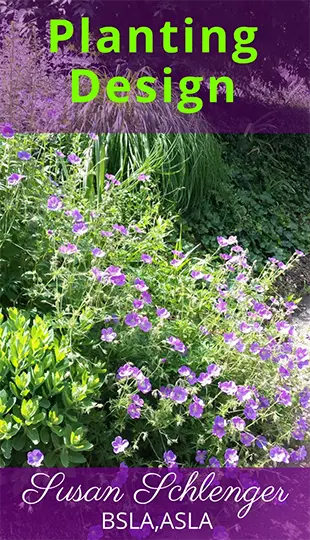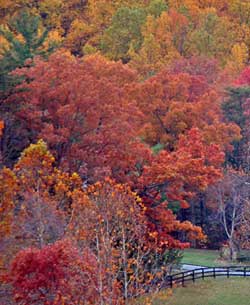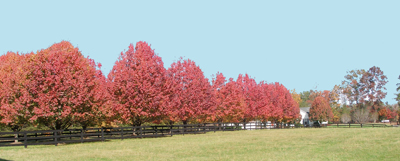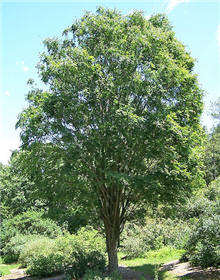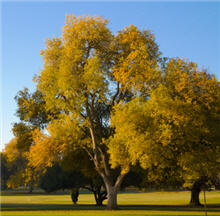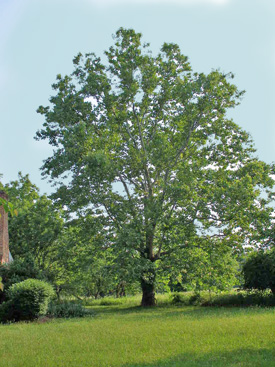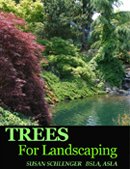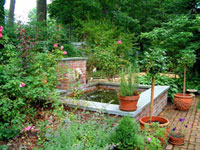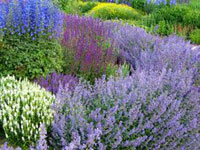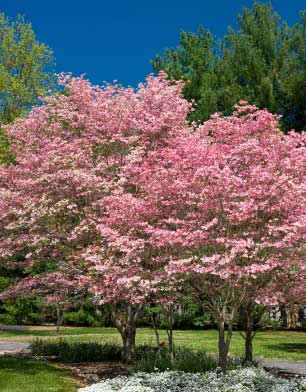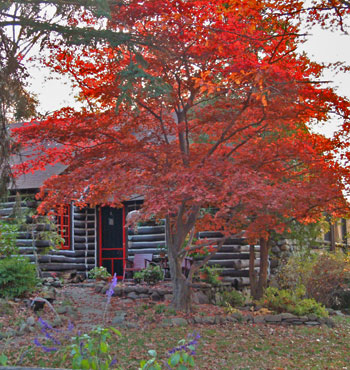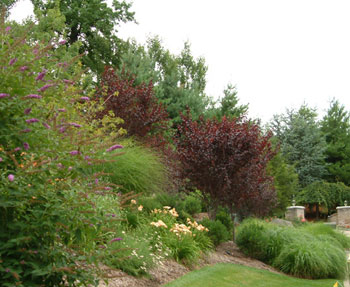Best Shade Trees For Your Landscape
With so many shade trees available, how do you go about making your selection? Here is some information to help you out in your journey! They all cast greatshade and each of them have their own wonderful attributes. The main thing is to include them in your landscape!
Choose from different shapes, sizes, fall color, etc. Below are my recommendations.
To me, a landscape without trees is pretty barren looking. You will be amazed how they can enhance your landscape design.
There are so many trees to choose from, that it's easy to get overwhelmed. Here are some of my very favorites. I also recommend you taking a look at my very helpful book Trees For Landscaping
Red Maple Tree
- A lovely choice for a large tree.
- I like the shape of the tree and the shape of the leaves.
- Choose the varieties 'Red Sunset' or 'October Glory'. These have dazzling color for the Fall landscape.
A great sight is viewing an allee of Red Maple trees lining a driveway in the fall. So many trees and so much color are breathtaking.
That being said, one beautiful Red Maple out in the open lawn will be lovely.
If you have the space, use three of them. Place two closer together and one off to the distance a bit, staggering all of them to form a triangle.
I would strongly recommend this tree. It is one of my favorites.
Pear Trees
Pear trees are one of the first landscape trees to flower in the Spring with an abundance of small white flowers.
They are one of the last trees to turn color in the Fall.
Fall colors can be a beautiful mix of purples, golds, and reds.
These are also very nice landscape trees to line a driveway with. They are a good choice if you have some space restrictions because some varieties are narrower than some of the other large trees.
I often use this tree in my designs for clients.
Japanese Zelkova
- A beautiful vase shaped tree.
- A Zelkova in the lawn makes a stately picture.
- It is similar to the Elm, yet hardier.
This tree is very similar to the Elm Tree in looks. It's leaves are quite small which makes it different than the typical large leaf trees.
It has a very unique look to it if you are looking for something a little different.
It will get to be about 60 feet tall and about 35 feet wide.
Chinese Elm Tree
This is a very graceful and elegant old fashioned shade tree.The new varieties are disease resistant. Make sure that the variety you choose is.
The Chinese Elm get to be about 50 feet tall and 35 feet wide, while the American elm varieties get even larger.
This is a gorgeous tree...place it as a focal point in an open space.
General Tips
Think about where you would like shade on your property and where the sun is during the hottest part of the day.
A tree will cast its shade in the opposite direction of the sun and under the canopy of the tree. The shade will also extend out a bit in other directions.
When selecting your tree, find out how tall and wide it grows. In this way, you can judge where the shade will be. There might be an area that you really do not want to be shaded.
Of course, these trees will typically take a fair amount of time to reach their maximum sizes.
Give them lots of open space. One out in the open lawn, as it ages, will look beautiful.
American Sycamore...another nice one!
Shade Tree Size
Most shade trees get quite large. Those that do not are typically
designated as ornamental trees. (Ornamental trees, however, can get
pretty big too.) So make sure that the location you are thinking about
for your shade tree can accommodate a very tall and wide tree. It's best
to look up the mature size prior to purchasing to make sure it's not
too big for the spot.
Tree Shapes
Shade trees come in many shapes. Sometimes it doesn't matter which you choose. For example, if it is one tree out in open lawn. However, there are situations where one shape may look better than another. You generally would not want to place three weeping trees together or even 3 pyramidal ones. However, three vase shaped trees used in a group can look very graceful and natural. Here are some shapes you will find.
- columnar
- vase shaped
- pyramidal
- oval
- weeping
Soil Conditions
Check to see if there are any special soil requirements. For example, Red Maples will take wet conditions.
How Fast Do Trees Grow?
There are fast growing shade trees
(like the Silver Maple or Weeping Willow), moderate growers, and also
those that grow very slow (Gingko Biloba. This may or may not matter to
you. Everyone likes trees that get large fairly quickly. However, some
fast growing trees are shorter lived than those that grow more slowly.
In addition, you may just love something about a tree and the growth
rate does not matter. Does it have stunning fall color for example?
Shade Trees and Fall Color
Personally, along with the shade that they provide, this is one of the best things about shade trees. They can have absolutely beautiful fall color.
- Red Maples can turn a vibrant red.
- Birch Trees turn golden.
- Pear Trees turn a kaleidoscope of purples, golds and reds all together.
These
are just some examples. I would recommend looking up the fall color of
the trees you are considering. It may not matter in the spring, but I
can guarantee you that when fall comes around, you will be happy you
did!
Interesting Foliage, Leaf Shapes and Tree Bark
This can add to the look of shade trees. Some foliage is open and delicate while other leaves are dense and heavier looking. Some have leaves that are just ok, while others have those that are rather striking.
I like the Birch Tree foliage. It's delicate and the tree has an open form.
I also like the leaves on Gingko Biloba..they are charming. Too bad it is such a slow grower, but as mentioned this may not matter
too you. Also some trees have pretty bark, like the Beech tree.
Planting Zones
Be sure that you know your planting zone and that the tree you select
falls within it. Not all trees grow in all areas.
Tips on Design
- These large trees can either go in a bed with other plants or may be placed in the lawn.
- Provide a 4' to 5' diameter bed around trees in the lawn to protect the trunk when mowing the grass.
- Add a 3" layer of mulch.
- Now, how does a nice bench or chair under the tree sound? Sounds good to me!
- This type of tree can also be placed near a patio. Besides the shade it offers, it creates a nice visual canopy.
For more detailed information, take a look at my ebook Trees For Landscaping You will find specific information on each of my recommended trees. Thee are some of the best and I use them in my landscape designs. Learn how to place them in the landscape. I also provide many beautiful tree pictures. Take a look!
If you enjoyed this page, please share it!
